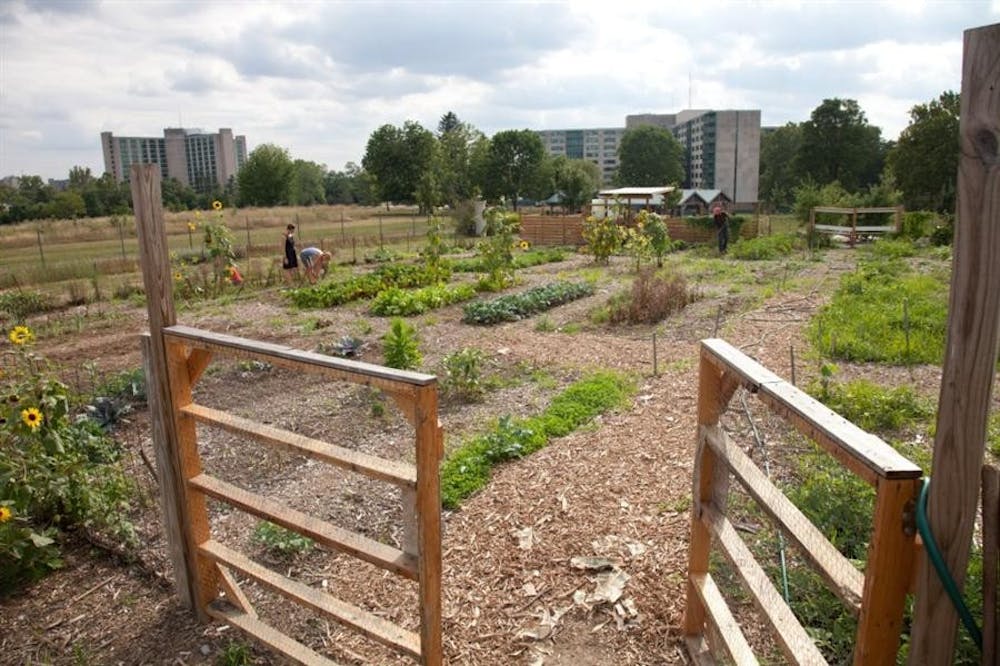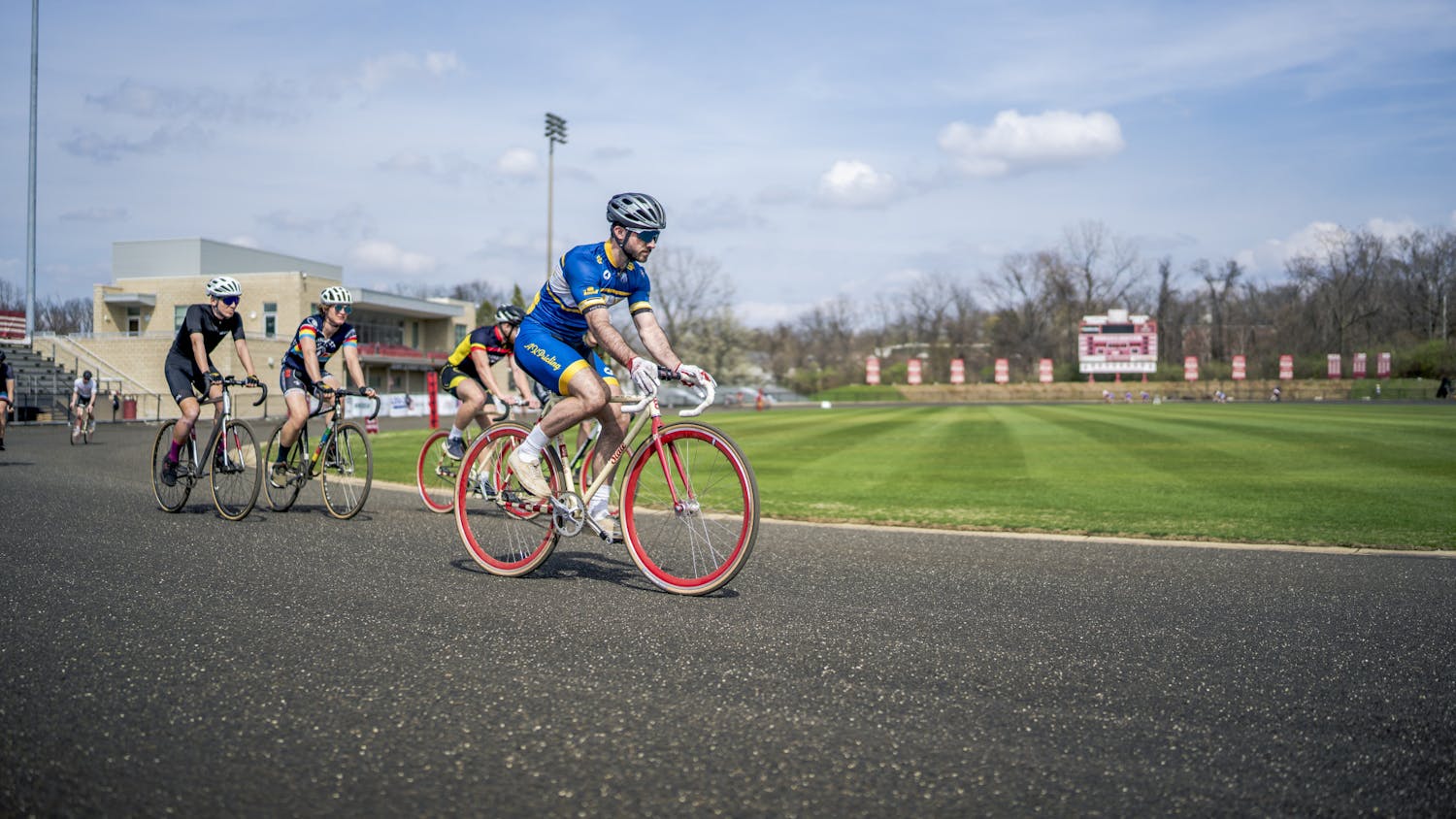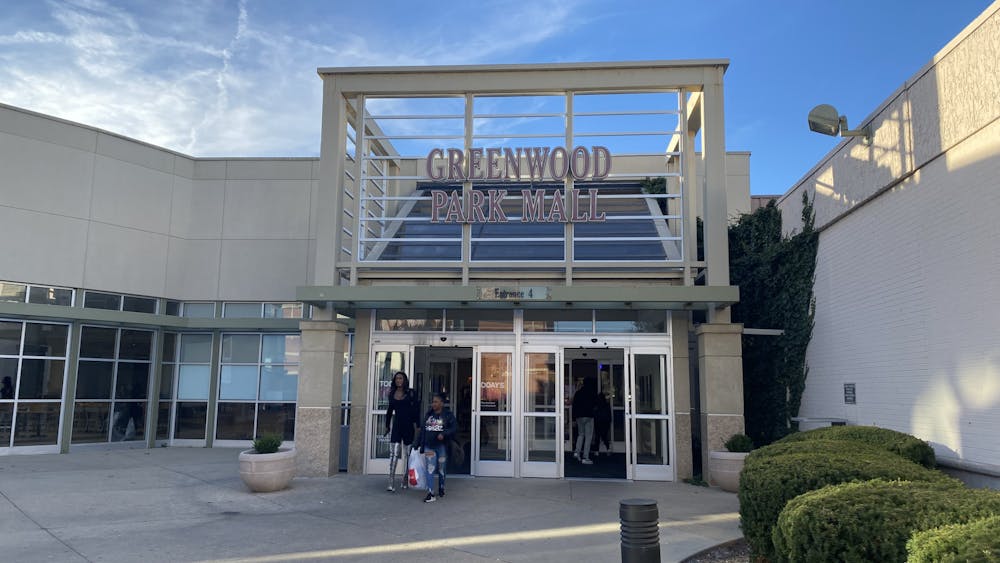Situated between the Tulip Tree and Campus View apartments is Hilltop Garden and Nature Center — an 8,500-square-foot garden plot dedicated to the care and growth of sustainable food.
This garden, in conjunction with the Bryan House Gardens at the heart of campus, produces a large variety of crops grown by local residents, student volunteers and faculty.
But these gardens aren’t part of a science project, a campus organization or a biology course.
They are grown to educate students and residents of Bloomington about sustainable food as part of the Campus Garden Initiative.
A program of the Office of Sustainability, the initiative encourages all its volunteers to grow, harvest and take home their crops at the end of each season.
Frances Einterz, Office of Sustainability intern and IU biology student, said this practice allows volunteers to realize where their food comes from matters.
The Hilltop Gardens are the newest addition to the initiative, which is in its second season this spring.
The gardens accommodate everything from leeks to leafy greens, watermelon to tomatoes and even herbs like basil and parsley.
Einterz said the campus gardens are also part of a wider program called the Edible Campus Initiative that aims to raise awareness and educate its participants about the importance of and interconnection between local food, food production, food waste and our nation’s current food system.
“We want them to understand that food is seasonal, and if you are eating locally there is some restriction to what you can buy,” Einterz said.
As well as informing volunteers about the origins of food, the initiative pairs with University needs to provide food for IU students and visitors alike.
Although many might not realize it yet, the campus gardens work with the Indiana Memorial Union’s Tudor Room to provide it with fresh salad greens, produce and herbs for use in luncheons and other dining events.
Residential Programs and Services also receives fruits of the initiative’s labor, sending produce to select dorms for use in dining hall salad bars or certain prepared foods.
Once the produce goes through the Residential Programs and Services or Indiana Memorial Union dining systems, it goes straight back to the gardens in the form of compost.
Einterz said the rotation of crops and use of compost keeps local soil healthy and has a bigger impact than most people realize.
“When someone buys an apple at the store, it’s having a bigger impact,” she said. “It has environmental and economic consequences and social consequences. The whole point is to get people to think about their health, society’s health and the environment’s health.”
Volunteers offer their time to the gardens on a weekly basis to help sustain the crops year round.
As many as 15 volunteers can work at each garden on any given work day. Currently, work days fall from 5 to 7 p.m. Tuesdays at Hilltop. Bryan House Gardens working hours will begin next school year, Einterz said.
Einterz said the schedule varies each academic year but is updated frequently in the Office of Sustainability’s online events calendar.
Parking at Hilltop is free for all volunteers, and so is the experience.
Einterz said the sustainable food movement is something obvious to her but not so evident to others.
“My mom always had a garden, and my dad is a biologist, so I can look at it from a biological perspective as well,” she said. “Food is such an essential part of our life that it seems like an obvious place to go to look for solutions to the broader issues we face as a country.
"Especially when our country is producing enough calories to feed the whole world, but people still go hungry. It makes sense and it’s logical that this would be a part of my life.”
Growing as a campus
Hilltop Garden and Nature Center promotes local food production, homegrown crops

Get stories like this in your inbox
Subscribe





